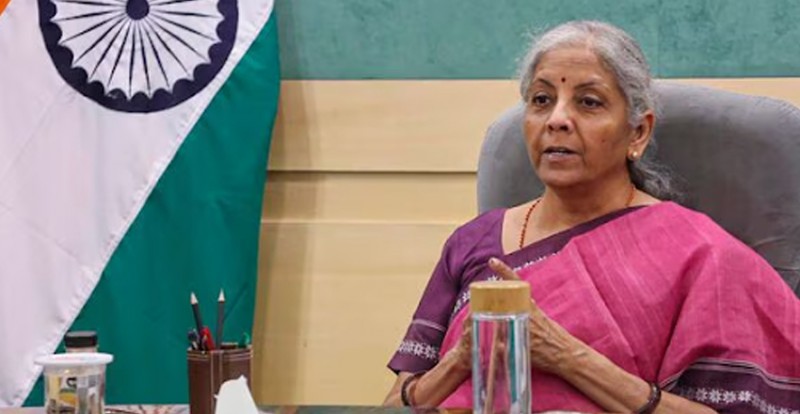
Nirmala Sitharaman assumed office for her second consecutive term as Finance and Corporate Affairs Minister on Wednesday, gearing up to present the final Budget for FY '25. The budget is expected to define the priorities and direction of the Modi 3.0 government for 'Viksit Bharat' (Developed India).
Upon her arrival at the North Block office, Sitharaman was warmly received by Finance Secretary T V Somanathan and other top officials, including Minister of State for Finance Pankaj Chaudhary. Chaudhary had assumed his charge the previous evening.
During her first day in office, Sitharaman was briefed on ongoing policy issues by departmental Secretaries, according to an official statement. She emphasized the government's commitment to ensuring 'Ease of Living' for citizens and reiterated that reforms initiated since 2014 would continue to enhance macroeconomic stability and growth in India.
Highlighting India's resilient growth amid global challenges, Sitharaman expressed optimism about the economic outlook in the coming years. She urged all departments to push forward the NDA government's development agenda with renewed vigor, emphasizing responsive policymaking to realize Prime Minister Modi's vision of 'Viksit Bharat'.
Sitharaman reaffirmed the government's motto of 'Sabka Saath, Sabka Vikas, Sabka Vishwas, Sabka Prayas' and called for continued support and cooperation from industry leaders, regulators, and citizens to ensure a robust and vibrant economy.
Notably, Sitharaman holds several records in her political career. She became the first female Raksha Mantri (Defence Minister) in 2017 and has also served as the Minister of Industry and Commerce. She is the first full-time woman Finance Minister in Independent India.
Under her leadership, significant economic reforms were implemented, including a reduction in the corporate tax rate to 22% from 30% to stimulate the economy post-demonetization and GST implementation. During the Covid-19 pandemic, she announced a special economic package amounting to Rs 20 lakh crore, equivalent to about 10% of India's GDP, to support the poor.
Despite challenges, Sitharaman managed to steer the Indian economy from a nearly 24% contraction in the first quarter of FY21 to becoming the fastest-growing major economy globally. She also achieved fiscal consolidation, reducing the fiscal deficit to 5.6% of GDP from an earlier estimate of 5.8% in FY24.
Sitharaman is set to present her seventh consecutive Budget, a record in itself, to the newly formed 18th Lok Sabha next month. Her approach to the Budget presentation has followed the footsteps of her mentor Arun Jaitley, departing from the colonial-era tradition by presenting the Budget on the 1st of February and replacing the traditional briefcase with a bahi-khata carrying the National Emblem.
Born in Madurai on August 18, 1959, to Narayan Sitharaman, a railway employee, and Savitri, a homemaker, Nirmala Sitharaman studied economics at Seethalakshmi Ramaswami College in Tiruchirapalli. She pursued her Master's and M.Phil in Economics from Jawaharlal Nehru University (JNU) in New Delhi.
Before entering politics, Sitharaman worked in the corporate world in the UK, where she lived with her husband Parakala Prabhakar, whom she met at JNU and married in 1986. They have a daughter, Parakala Vangmayi.
Sitharaman's political journey began in 2008 when she joined the BJP and quickly rose to become the party's second woman spokesperson after Sushma Swaraj. Prior to politics, she served as the deputy director of the Centre for Public Policy Studies in Hyderabad and was a member of the National Commission for Women from 2003 to 2005.
Read More: